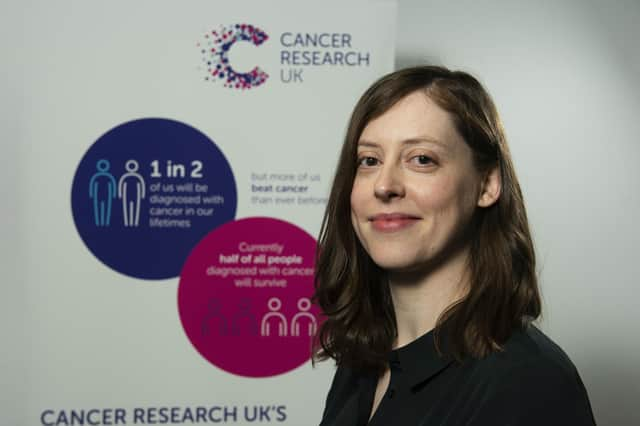One year of Covid in Scotland: The health issues left behind


A never-before-seen channelling of resources towards the NHS has allowed extra staff to be brought in, testing centres and vaccination centres to spring up, and pioneering research to take place on a scale that would have been unthinkable just over a year ago.
The advances in science and technology that this focus has allowed have led to Covid-19 vaccines being developed – safely – in record time.
Advertisement
Hide AdAdvertisement
Hide AdOther innovations, too, have been sped up, many to facilitate remote care.
But some areas of health and social care have received less attention, by necessity, and many in the industry worry about the impact this will have on the NHS in future.
One major area of concern is delays to non-Covid operations and diagnostic tests, including those for cancer.
Public Health Scotland figures show that more than 100,000 people were waiting for cancer diagnostic tests at the end of 2020, up by 15 per cent from the end of 2019.
The testing backlog is “really concerning", said Cancer Research UK head of policy Kirsty Slack.
“Despite the best efforts of of NHS staff who have been working so hard during the pandemic, Covid-19 has undoubtedly hit cancer services really hard, in particular during during the first wave,” she said.
"And while services are recovering, and getting back on track, there’s a really concerning backlog in the number of people who are waiting for a diagnostic test.
“We've seen a worrying drop in the number of people who have had a cancer diagnosis, compared to what would have been expected on those points.”
Advertisement
Hide AdAdvertisement
Hide AdShe added that the national cancer recovery plan published by the Scottish Government at the end of last year was “welcome” and did contain a number of positive actions.
Ms Slack added that another area of concern is the research funding cuts taken by all charities.
“We had to make a very difficult decision to cut some of our research funding in April," she said.
"Without further support we’ll need to make major cuts for our research budget every year over the next four to five years, and that could mean potentially we would be spending 150 million pounds less per year by 2024 than we had planned to spend.”
This funding would go towards vital clinical trials and research, Ms Slack said.
"Some current patients may benefit, as they might get access to cutting edge treatment which may benefit them, and research also has the potential to improve cancer treatments for patients in the future.”
The Association of Medical Research Charities (AMRC) revealed in October that 40 per cent of charity-funded early career scientists in the UK had considered leaving research over funding concerns since the pandemic broke out.
Aisling Burnand, Chief Executive of AMRC, warned a lack of funding due to the pandemic could “have a severe impact on several decades of research crucial to finding new ways to diagnose, manage and treat diseases including heart disease, cancer, arthritis, rare diseases and neurodegenerative disorders.”
Thank you for reading this article. We're more reliant on your support than ever as the shift in consumer habits brought about by coronavirus impacts our advertisers.
If you haven't already, please consider supporting our trusted, fact-checked journalism by taking out a digital subscription.
Comments
Want to join the conversation? Please or to comment on this article.